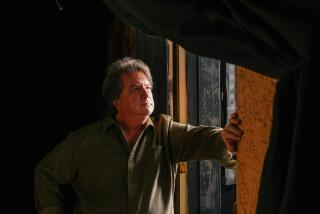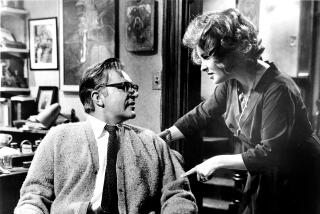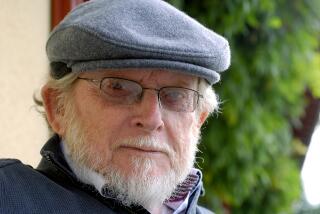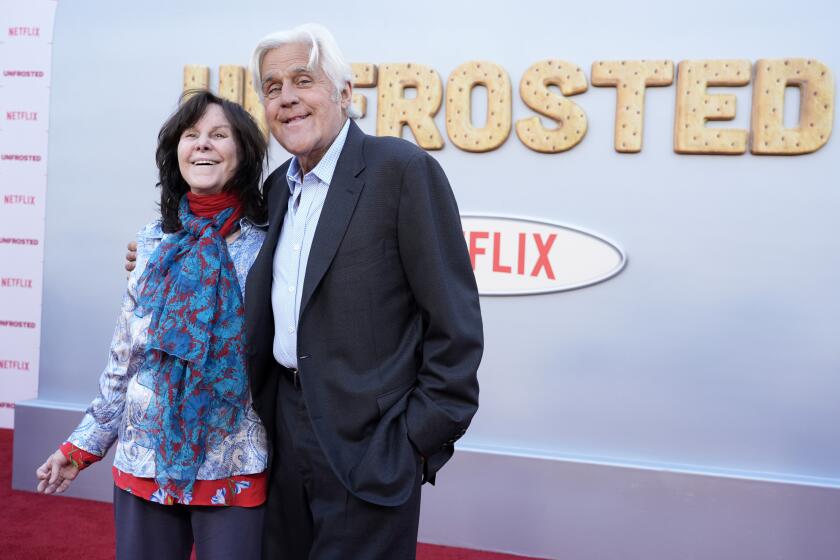ALBEE GIVES ADVICE TO STUDENT PLAYWRIGHTS
- Share via
Experience may be the best teacher for a budding playwright, but a few words of advice from Edward Albee can’t hurt, either.
Albee, author of “Who’s Afraid of Virginia Woolf?” and “The Zoo Story,” as well as the Pulitzer Prize-winning “Seascape” and “A Delicate Balance,” came to Loara High School in Anaheim Thursday to dispense some nuts-and-bolts advice on the craft of writing plays. His attentive audience was made up of student authors from throughout the Anaheim Union High School District, who spend their lunch hours participating in a program called the Young Playwrights Project.
They brought perceptive questions for Albee, as well as scenes from their own works-in-progress for his comments. Albee, 58, opened his talk with a lesson he learned during his own stop-and-start high school career. “Education doesn’t stop when you get your degree. That’s just the beginning of it,” he told the audience of students and faculty members that filled the Loara library. “The reason you’re here is to learn how to educate yourself about everything throughout your life.”
He has always been a playwright, he said; it just took him close to 30 years to discover that fact. He first tried his hand at poetry, novels and short stories. (“The short story and I had a lot of arguments about its nature, and it was winning. So I didn’t write short stories anymore.”)
What was left? “I decided to write a play . . . out of desperation, I suppose. It was really the only form of writing I hadn’t tried--hadn’t failed in, anyway--and so I wrote a play. It was called ‘(The) Zoo Story.’ ”
That was in 1958; two years later, when “The Zoo Story” was first produced in New York, it earned him recognition as a distinctive new voice in the American theater. In the process of sitting down at the kitchen table and writing that play, he discovered he was a playwright. “But I learned something far more important--that I had been a playwright all of my life, and I hadn’t known it because I hadn’t been writing plays. It was a kind of an awareness not only of what I was but who I was.”
Albee is a frequent lecturer on college and high school campuses, offering advice and encouragement to young playwrights. He spoke at Loara under the auspices of the Young Playwrights Project, which is in its second year in Anaheim schools under the direction of Jane Davis, chairman of the Loara English department. The project offers training to high school and junior high school students interested in writing plays. They meet weekly over lunch to read their works aloud and exchange comments. In May they will enter their finished works in a competition sponsored by the Young Playwrights Project.
Albee is finishing work on his 26th play, “Marriage Play,” about a 20-year relationship that arrives at a turning point. “I’ve written about 25 plays, some of which have been fairly popular, some of which have been quite unpopular,” he said. “Some of the unpopular ones . . . are probably better plays than some of the very popular ones. So I’m not trying to equate excellence with popularity here.
“The whole purpose of writing is to share with people your own writer’s sense of what’s right in the world and what’s wrong, how people behave and how they should change,” he told his audience. “But your function as a writer is to teach and to entertain at the same time.”
More to Read
The biggest entertainment stories
Get our big stories about Hollywood, film, television, music, arts, culture and more right in your inbox as soon as they publish.
You may occasionally receive promotional content from the Los Angeles Times.










